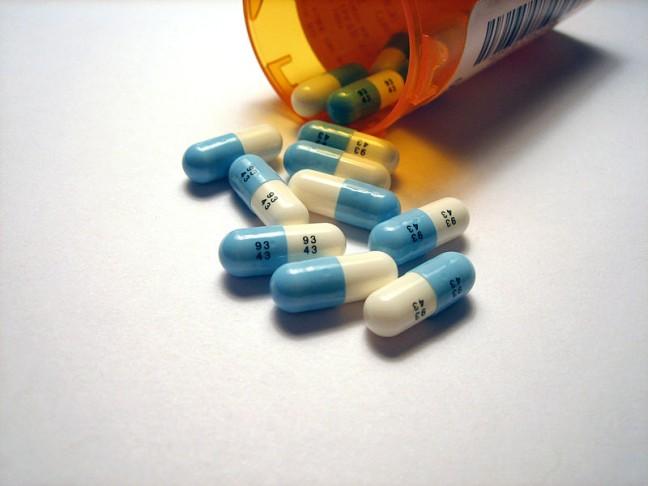People struggling with opioid addictions will have more support options available following the Nov. 1 launch of a new program at SSM Health St. Mary’s Hospital in Madison.
The Recovery Coach program, which will be the first of its kind in Wisconsin, will place on-call recovery coaches in the emergency department where overdose patients are treated.
A recently released report from the Wisconsin Department of Health Services showed a 70 percent increase in total drug overdose deaths from 2005 to 2015.
Doctor Kyle Martin, an emergency department medical director and University of Wisconsin alumnus, said in an email to The Badger Herald that the voluntary program for patients aims to provide resources and counseling to patients addicted to opioid substances like heroin, Vicodin and Percocet.
“Opioid addiction is a very powerful disease, affecting thousands of people in our community, from all walks of life,” Martin said.
The Recovery Coach pilot program aims to enroll 75 patients over the initial nine-month period, after which they will judge the success of the program.
Funding for the program will come from the Wisconsin Medical Society Foundation and Dane County. Program planning falls to Safe Communities, an organization that coordinates county-wide efforts to improve public safety.
Martin said patients often are monitored in the ER but then discharged, enabling them to repeat the cycle of overdosing and continuing to use drugs without intervention. The program will pair patients with trained counselors.
“The idea is to place someone who knows their situation,” WMSF Executive Director Eileen Wilson said. “These recovery coaches are people who are in some cases former drug abusers and just have a very intimate knowledge of what’s happening and can be a wonderful resource for guiding them through into treatment programs.”
Wilson said the purpose of the program is to catch people at the time when they’re in crisis, possibly after they have been revived from near death with the opioid counteractive drug called naloxone, commonly known as Narcan.
Skye Tikkanen, the Safe Communities drug poisoning prevention program manager, said patients will receive personalized paths to recovery.
Once hospital staff determine patients are medically stable, Tikkanen said the patients will be given the opportunity to meet with recovery coaches, who will use the motivational interviewing and basic counseling techniques they received in training to help the patients and provide them an opportunity to get into recovery.
Coaches determine appropriate treatment options and stay connected with the patient every day until he or she can get into a treatment system.
The person who has had the overdose is responsible for determining what they want that support to be. Tikkanen said the whole program is designed to be individualized to each patient’s needs.
“For people that have really high social anxiety, they might want texts every day because that’s what they’re most comfortable with,” Tikkanen said. “For people who have less anxiety, they might want to go to meetings, to get coffee or to get phone calls. We’re really leaving that up to the person.”
It’s ‘our’ problem: The growing heroin epidemic across Wisconsin
The foundation’s mission is to advance the health of Wisconsinites by supporting medical education and public health initiatives. Safe Communities applied to the foundation for a grant to fund the Recovery Coach program.
The program matches the foundation’s priorities to educate people and help with medical treatment. The Wisconsin Medical Society, a membership organization for doctors in the state, is also working to educate physicians on how to prevent people from getting access to the drugs, Wilson said.
Martin said he hopes the collaborative efforts of Safe Communities and St. Mary’s Hospital will help break the cycle of drug dependency and overdose.
“We believe that by intervening at a time when a patient has been close to death we will be able to break the cycle and treat their addiction,” Martin said.
Safe Communities’ healthcare taskforce, composed of representatives from all of Dane County’s healthcare systems, is looking for ways to grow the program in health organizations across the city and state if it is successful.
Coordinators modeled the new Wisconsin program after Rhode Island’s “Anchor ED,” where 80 percent of patients followed up in treatment programs.
“This high of a success rate is incredibly rare and we hope to achieve the same level of success for our patients,” Martin said.
Martin added that he hopes the success of the collaborative pilot program will demonstrate the “great need for better access to life-saving treatment for those struggling with addiction in Dane County.”
Parisi prioritizes homelessness, opioid epidemic in 2017 budget
Though Tikkanen said she wishes the program could have been implemented sooner, the attention being paid to the opioid epidemic is opening doors for additional funding and partnerships for improved treatments.
“In our own hospital we saw 180 opioid overdoses last year,” Martin said. “That averages to one every other day. We sincerely hope we can break this vicious, dangerous cycle and treat this disease.”

















